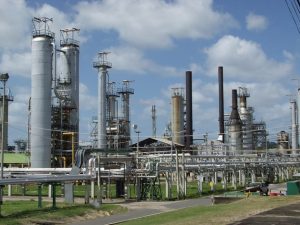…but Nigeria must replace 20 GW diesel generation
Nigeria and Africa’s energy system offers major opportunities to stimulate the creation of decent jobs that require wide-ranging skills, according to a new IEA report.

With a population projected at 500 million by 2050, Nigeria represents a huge investment opportunity across the entire energy sector. Africa’s population, projected to reach 2.5 billion by 2050 from 1.68 billion in 2030, also represents a huge investment opportunity across the entire energy sector.
According to the IEA report, in Sustainable Africa Scenario, 4 million energy-related jobs in total are created across the continent in the 2021-30 period, due largely to providing universal access to modern energy to households in SSA, and rapid deployment of clean energy technologies.
However, Nigeria must displace the 20 GW diesel generation and replace same with utility-scale gas-to-power and renewables, develop bottled gas products to displace biomass with cooking gas, and extend along value chain into power generation with gas and hybrid model.
Also, the country must invest in improved domestic infrastructure, increased export and refining capacities, increased gas-fired capacity, improved national grid, metering, billing, payments, renewables, and clean cooking displacing biomass as clear areas of value for businesses in-country, the global energy agency strongly advised.
The World Bank says 85 million Nigerians, or 43 percent of the country’s population, do not have access to grid electricity. This makes Nigeria the country with the largest energy access deficit in the world.
According to the United States Agency for International Development (USAID), Nigeria, endowed with oil, gas, hydro and solar resources, has the potential to generate 12,522 MW of electric power from existing plants. Sadly, the country’s current generation hovers around 4,000 MW.
At the recent Africa Energy Week (AOW) in Cape Town, South Africa, it emerged that one of the priorities in energy transition is to flare out, monetise gas, displace diesel and biomass with cleaner fuel, extend power value chain, targeting smaller scale gas-to-power customers. It also emerged that energy companies should commit to high Environmental, Social and Governance (ESG) performance.







